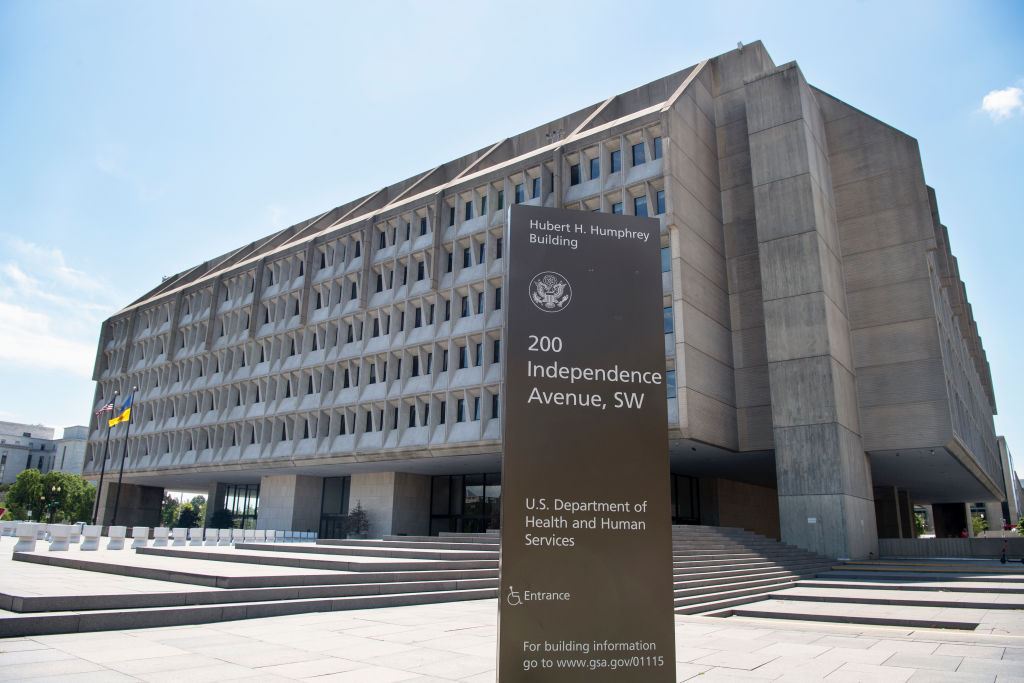From the start of the Great Recession in 2007 through 2019, at least 38,000 public health jobs were eliminated at the state and local level. Then came the pandemic, which strained many essential workers, including those in the field of public health. In a recent survey, 44% of public health workers said they were considering leaving their jobs within the next five years for retirement or other reasons, with 76% of those respondents saying they began thinking about leaving since COVID-19 hit.
For state and local public health jobs—including those that require master’s of public health (MPH) degrees—part of the problem is that workers usually make substantially more money in the private sector. To help address this issue, the Public Health Scholarship Program (PHSP) was created to award nearly $41 million in grants to support public health education and training.
The program is overseen by the Health Resources and Services Administration, an agency of the U.S. Department of Health and Human Services, and scholarships are being provided to individuals enrolled in both degree and certificate training programs in public health—including MPH programs.
“It’s really going to help local and state public health entities that have been struggling to maintain that workforce, especially during the pandemic and after,” explains Luis Padilla, associate administrator for health workforce at HRSA. “There’s a need to recruit more talented individuals in that area, and this funding is going a long way.”
For people interested in a career in public health, these scholarships can significantly reduce the cost of pursuing a degree. Fortune spoke with experts to find out more about how the program works and who is eligible for funding.
What is the Public Health Scholarship Program?
The aim of the Public Health Scholarship Program is to support organizations to develop scholarship programs for public health education. Over three years, PHSP will support 29 different academic institutions. In turn, those organizations will create and award scholarships; HRSA estimates that the program will support more than 2,700 scholarships to individuals studying public health.
“HRSA is committed and dedicated to creating a robust and strong public health workforce,” Padilla explains.
Through the program, scholarship recipients will gain the necessary knowledge and skills to prepare for public health issues related to COVID-19, as well as other public health emergencies. Awards to participating institutions were announced last September and funding will continue through Fall 2025. The applicant schools had to meet certain eligibility requirements, including being an accredited program providing training in public health.
In addition to educational funding, PHSP scholarship recipients will also benefit from field experiences with potential employers such as state or local governments, public health departments, or other public health-related organizations.
How students can get their MPH paid for
As PHSP scholarships are administered through 29 approved institutions, students who wish to take advantage of this program should apply directly through those institutions. Among this list, the following schools appeared on Fortune’s ranking of the best online MPH programs: George Washington University, Louisiana State University, and the University of Southern California.
One of the 29 institutions on the lis is the University at Buffalo’s School of Public Health and Health Professions. This spring, 17 students enrolled in Buffalo’s MPH program received funding from PHSP, as did three other students enrolled in one of the school’s graduate certificate programs. Buffalo’s program gives scholarship preference to students from underrepresented and diverse backgrounds.
“It provides a fully funded degree,” says Kim Krytus, assistant dean and director of graduate public health programs at Buffalo. For tuition, fees and living expenses, Buffalo estimates that pursuing the degree costs the average New York State resident approximately $29,000. Many Buffalo students participating in the PHSP program have told the school that they wouldn’t have been able to attend without the funding.
Buffalo’s program is just ramping up, Krytus says, and the university expects the school’s fall PHSP cohort to be much larger—with a goal that 25% of the MPH student body will receive funding by the end of the program’s third year. Buffalo’s award from HRSA totals $1.3 million; per guidelines, 90% of that funding will go toward tuition for students.
The hope, among Buffalo’s leadership, is that these students will go on to practice public health in their communities.
“Health disparities, especially in the Buffalo region and the western New York region are pretty extreme,” Krytus says. “There are very big differences in health outcomes for different groups of people.”
And these students are likely to be in demand upon graduation. In every cohort between 2016 and 2021, 100% of reporting Buffalo MPH graduates that searched for a job found one.
Additional benefits of the PHSP program
There are additional benefits for students participating in the PHSP program. In addition to receiving financial assistance to pursue their degree, they’ll take part in public health field experiences beyond the standard. experience. While all MPH students at Buffalo practice their skills with an external partner for one semester, HRSA trainees receive two semesters of practice.
“They receive very intense, in-depth training in pandemic preparedness and public health leadership addressing social determinants of health, which are underlying causes of so many of the most major health issues that people experience,” Krytus says.
Check out all of Fortune’s rankings of degree programs, and learn more about specific career paths.








